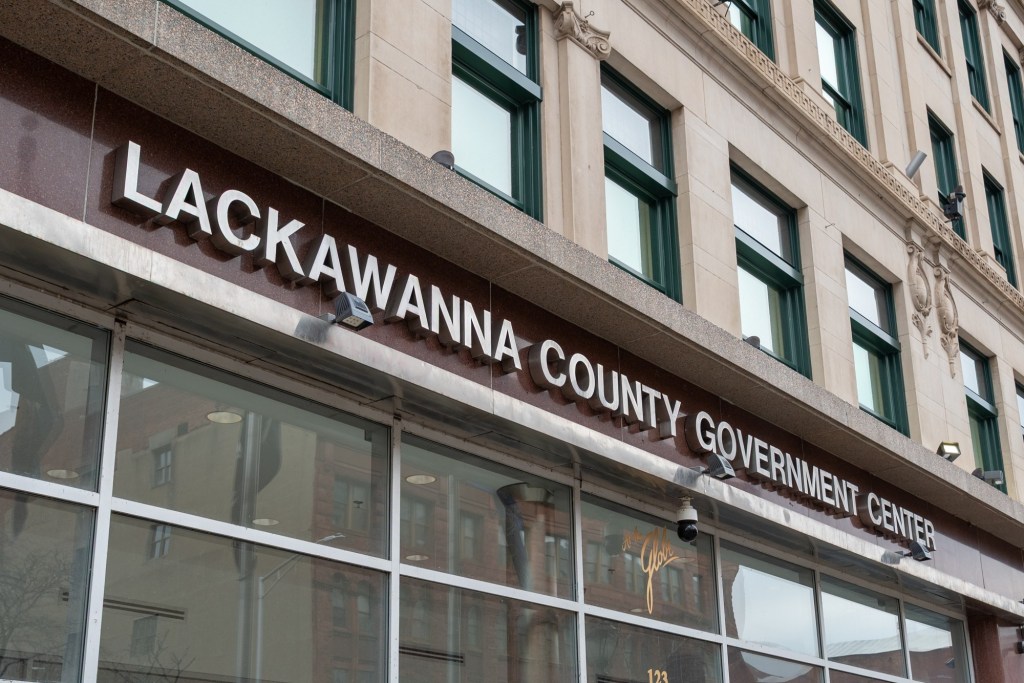SCRANTON — Lackawanna County taxpayers will have the opportunity next year and thereafter to pay their annual property tax bills in quarterly installments instead of all at once.
Commissioners Bill Gaughan and Chris Chermak recently authorized the change, which should give cash-strapped property owners flexibility when paying their taxes and potentially bolster the county’s collection rate.
It will allow taxpayers to pay the face value of their bills in four installments due on the last workdays of March, June, August and October. Failure to pay any installment by the due date would result in a 10% penalty added to the installment, per the resolution commissioners passed Wednesday.
“This resolution may look to people like a small procedural item on paper, but in reality it represents a meaningful step forward for taxpayers in Lackawanna County, especially for working families, seniors on fixed incomes and small business owners who are trying to make ends meet,” Gaughan said before the vote. “When I first took office last year one of the biggest concerns that I heard from residents was how difficult it can be to pay the full amount of their property taxes all at once. For a lot of people the single bill hits at the wrong time, when household budgets are already stretched very thin. This plan that we’re putting forward today gives them flexibility, it gives them breathing room.”
Taxpayers wishing to take advantage of the county’s 2% discount period will still have to pay their bill in full by the discount-period deadline.
Officials don’t believe the quarterly payment option will hurt the county in terms of early year cash flows, as many taxpayers will still choose to take advantage of the discount period. They’re also optimistic it will result in fewer delinquencies.
The county’s roughly $181 million preliminary 2026 budget, which Gaughan and Chermak unveiled Wednesday afternoon, does not include a property tax hike. Officials were able to eliminate a roughly $4 million preliminary deficit in next year’s spending plan without increasing millage rates.
It follows an almost 33% 2025 tax hike Gaughan and then-Commissioner Matt McGloin approved in late 2024 over Chermak’s objections. Unpopular as it was, the increase helped the county avert a fiscal disaster and begin to address a long-developing structural deficit made worse in recent years.
PFM Group Consulting LLC, the county’s grant-supported financial consultant, has recommended officials consider small but regular tax increases moving forward so county revenues keep pace with growing expenditures. A relative lack of revenue growth as expenditures escalated in recent years contributed to the structural shortfall that prompted the 2025 tax increase.
Before this year, county taxes increased by about 5.9% in 2024, 11.3% in 2020, 4.4% in 2013 and 37.5% in 2012.
While the preliminary 2026 budget is subject to changes prior to passage later this year, commissioners don’t plan to include a tax hike in the final version.
Originally Published: October 16, 2025 at 2:45 PM EDT

